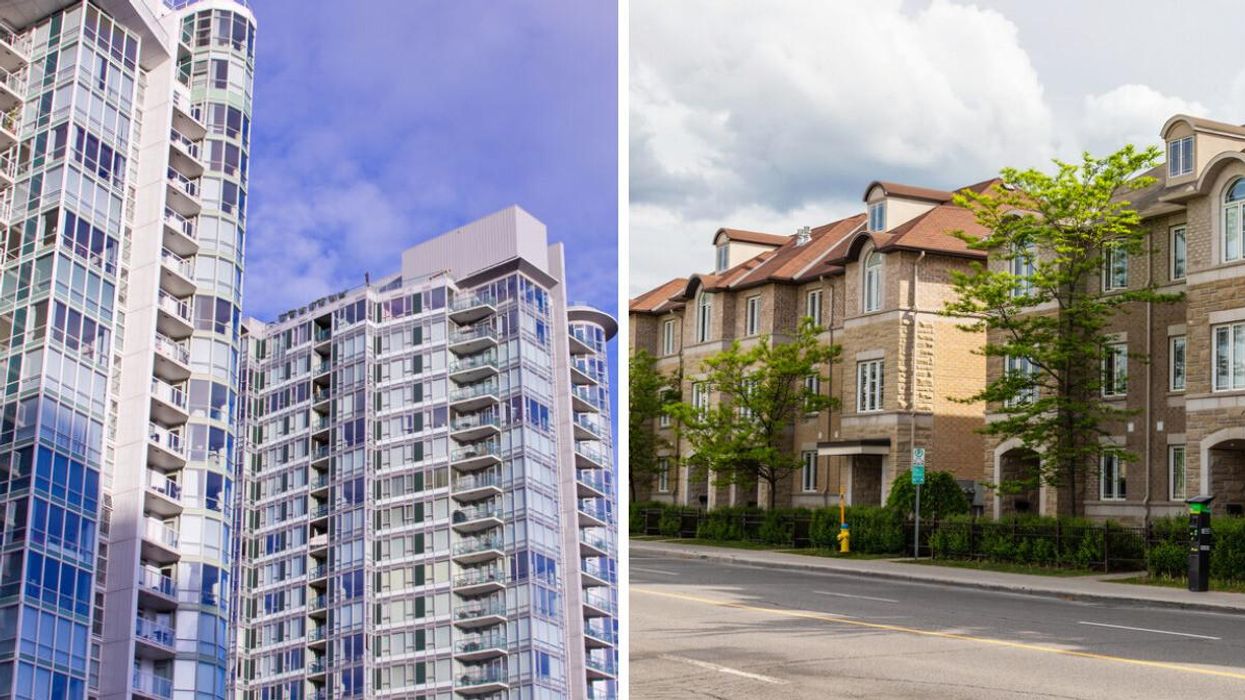Rent In Canada Is Going Up But These Major Cities Have The Cheapest Average Rates
Looks like a move to the prairies is in order! 🌾

Apartment buildings in Vancouver. Right: A row of houses in Ottawa.
Rent in Canada is becoming increasingly expensive and, if you're renting, the sky-high costs are something that you've probably noticed over the last year.
It's perhaps unsurprising that renters are feeling the pinch as, according to a new report by Rentals.ca, the cost of rent in Canada is going up across the country compared to last year.
Since the same time in 2021, the average rent in Canada has increased by a whopping 12.4% for all rental units on the market. That includes apartments, condos, houses and more.
This makes the average overall rent $2,024 every month, with the usual cost of an apartment being $1,840 each month and a condo coming in at $2,280 each month. Ouch!
Of course, what you pay for rent is highly dependent on that old standby: location, location, location.
However, there are a few cities promising cheaper rent than others.
The most affordable Canadian city considered in the report is Lloydminster, Alberta, where locals can rent a one-bedroom apartment for just $835 a month.
Grande Prairie, also in Alberta, comes in just behind with one-bedroom rentals available for $985 a month.
These two Albertan cities are the only spots considered in the report where you can rent for less than $1,000 a month on average, though.
The third cheapest slot goes to Red Deer, Alberta, where the average monthly rent for a one-bedroom is $1,029.
After that comes Regina ($1,035), Saskatoon ($1,038) and Edmonton ($1,110).
As for the most expensive, those honours go to the usual suspects.
Vancouver takes the top spot when it comes to the priciest rent in Canada ($2,633 per month on average), followed by Toronto ($2,532).
Vancouver's neighbour to the east, Burnaby, takes the third most-expensive spot ($2,304).
Other highly-priced cities included in the report are Oakville ($2,156), Burlington ($2,155) and Mississauga ($2,148).
So, if this report is anything to go by, perhaps a move out to the prairies is preferable.
And things aren't just hard for those out there renting. People who own homes are also feeling the squeeze due to rising inflation, as well as high-interest rates.
But, as housing in Canada is predicted to start to "correct" itself a bit more, that pressure on homeowners — and renters — might hopefully be eased in 2023.
This article's cover image was used for illustrative purposes only.